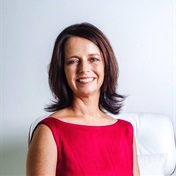
As the world is slowly starting to return back to work - have we learned anything? Will we individually and collectively change our lives and if so, how? Perhaps it is time we ask what we want.
Last week I wrote a column titled: "From Wisteria Lane to hysteria lane."
I was totally prepared for an onslaught of criticism following the publication.
There was the usual hate mail and someone even reported me to the ombudsman for "being prejudiced against people in the suburbs".
(Thank you for making me smile, complainant).
However, what really surprised me was the number of positive comments I received.
Clearly the article had struck a nerve.
In e-mail after e-mail, people thanked me for writing the column and expressed their despair at the lack of empathy they experienced in their fellow citizens - particularly those… well, in the suburbs.
Subsequently the President announced a dramatic easing of the lockdown restrictions.
How nice it would have been if it was all over now.
However, in reality the real challenges - medically and economically - still lie ahead of us.
It is predicted that until a vaccine is found many thousands of people will still die and our already bruised economy has taken an enormous beating.
So as we start exiting lockdown, it seems important that we ask what brought us to this point and how we can avoid it in future. Reflecting on these questions, there are two concepts that have really occupied my thinking.
The first one is kindness. A few nights ago, I came across a speech that the New Zealand Prime Minister, Jacinda Ardern, gave in 2018 at the United Nations.
Towards the end of her speech she said the following: "Perhaps it is time to step back from the chaos and ask what we want. It is in that space that we find simplicity …
"If I can distil it down to one concept… it is simple and it is this: 'Kindness'. In the face of isolationism, protectionism, racism, the simple concept of looking outward and beyond ourselves, of kindness and collectivism might just be a good a starting point as any."
It seems to me that this epidemic has shown more than ever how intertwined we are as human beings. A microscopic virus thousands of miles away eventually brought the whole world to a standstill.
At the same time, Covid-19 has again highlighted the huge inequalities that exist in our world - our country being one of the most unequal in the world.
Inherent in these inequalities are a cruelty and an unkindness, a deep-seated injustice, that diminishes all our humanity.
As we start to think about a post-Covid world we have to collectively find the moral courage and outrage to change this.
On an individual and collective level, kindness would be a very good starting point (to quote Ardern).
When you are truly empathetic (not the I'm-worried-about-people-in-the-townships-so-open-the-economy-so-I-can-get-rich-again type of empathy), then the world will change.
The second concept is that of "essential".
Having been forced to only do and buy what is essential during lockdown, it seems to me that the Covid epidemic is encouraging us to continue to ask: "What is truly essential in my life?"
This is an uncomfortable question to ask and not something that has been encouraged in the consumerist, growth-driven economic model that the post-World War II generation has grown up in.
Let me immediately acknowledge that for the majority of people in our country and world such a question never arises since their meagre income allows only essentials and often not even that.
What this epidemic has highlighted is that the manner in which one third of our planet (yes, that is us in the suburbs) live is unsustainable.
If we do not change our lifestyles, we will repeatedly arrive at some similar crisis point, until we pass the point of no return.
In Covid-19's case it is generally accepted that it was the greed of a very selected, privileged group of people for exotic animal produce that resulted in a zoonotic event (i.e. the Covid-19 virus jumped from animals to humans).
This extreme form of cruel consumerism, has now brought the whole world to a standstill.
Yet it is not unique.
We have for example known for a very long time that the way we live will cause dramatic climate change that will have catastrophic implications for us as humans.
If we don’t change dramatically how we eat, how we drive, what and how much we buy, how we generate and use energy and what we dispose of, we will face a much bigger crisis than the one we are experiencing now.
Yet, we have resisted personally and collectively to change - either because we don’t care or we think it is impossible to change.
What this Covid-19 epidemic has taught us is that when we really have to we can almost overnight make dramatic changes globally.
The question now remains: will we?
As the world is slowly starting to return back to work - have we learned anything? Will we individually and collectively change our lives and if so, how?
As we have found during lockdown, we might discover that we need very little in terms of possessions.
What really matters are the people that we share our lives and planet with.
So, (with apologies to Jacinda Ardern), perhaps it is time to step back from the chaos and ask what we want.
If I can distil it down to two concepts, it is this: "Kindness and essentialness."
In the face of one of the biggest challenges we have faced, let us look outward and beyond ourselves, and let us ask before every decision and action we take: "Is it truly essential and is it kind?"
That way we will undoubtedly change the world for the better.
- Melanie Verwoerd is a former ANC MP and South African Ambassador to Ireland




 Publications
Publications
 Partners
Partners























